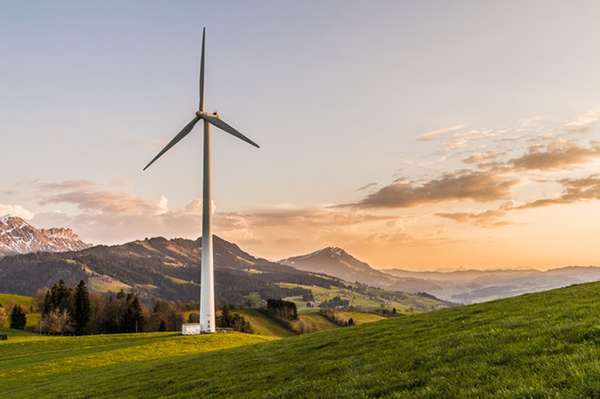My Cart
Making Earth Day Count: A Candid Interview On Sustainability Education
As Earth Day celebrates five decades of environmental action, there is no better time to reflect on longterm success and innovation in sustainability efforts.
Kristen Duncan, Sustainability Manager for Neenah, couldn’t agree more. Duncan recently took the reins on Neenah’s environmental marketing programs and sustainable packaging, citing sustainability education and mitigating climate change as her missions. She brings with her a Bachelor of Science in Graphic Communication from Cal Poly San Luis Obispo, an MBA from Cal State Fullerton, and a passion for the environment.
In this interview, Duncan speaks candidly about a wide variety of environmental topics, including the role of brands in mitigating climate change, recycling as part of the new circular economy, and the future of sustainable packaging.
Neenah: How did sustainability education become your focus?
Duncan: While working as a District Sales Manager for Neenah, I was heavily focused on the packaging industry. Every day, I was approached by customers asking about our sustainability programs and partnerships. Over time, the questions evolved as customers became interested in making sustainable changes for their own organizations. I found myself compelled to put together resources and to strategize with them. In the process, I was learning more about global issues and helping combat them.
I’m a California girl, so sustainability has always been in my blood and definitely something I feel strongly about. In my new role, I can focus entirely on communicating Neenah’s longstanding efforts while educating myself and the community on environmental issues.
Many of our customers now have their own sustainability goals. They want to be able to show consumers that their paper and packaging purchases are in line with those goals. We believe in transparency and put our environmental resources front and center for our customers. Whether it be downloadable logos, information regarding environmental certifications, or environmental victories, we want them to be able to access it all.
To transition toward global sustainability, I feel that more companies need to share their eco-stories and resources. Education is the key to kickstarting environmental change. I think everyone really wants to do the right thing, but they don’t always know where to start. I want to help change that.
Earth Day All the Way
Neenah: With climate change as the focus of Earth Day’s 2020 celebration, can you reflect on the ways that the paper and packaging industry has changed in the last 50 years?
Duncan: New standards have been implemented for responsible fiber sourcing, alternative fiber usage, cleaner manufacturing practices, reductions in greenhouse gas emissions, and more. If you look back on the paper industry of 30-40 years ago, everyone was very concerned about cutting trees to make paper.
Today, thankfully, that isn’t really a modern problem as the paper industry has taken responsible fiber sourcing, alternative fiber usage, and recyclability of products very seriously. But for these actions to make a more substantial impact, the paper industry needs consumer support in ensuring the responsibly sourced supply chain stays intact.
Brands are quickly becoming environmentally savvy, and that’s an excellent thing. However, brands need to own their material supply chain rather than relying on printers and converters to make responsible choices for them. The more intimately involved in the paper selection process they are, the better able they will be to stick to what they specify for their packaging needs.
Everything in the Blue Bin
Neenah: Many companies are interested in promoting a circular economy, an economic system aimed at eliminating waste and the continual use of resources. How does paper play into that?
Duncan: Well, paper can be recycled up to 7 times, making it an integral part of a closed-loop/circular economy. In 2018, the US Paper recovery rate was 68.1%. That means 68.1% of the time you toss a paper into your blue bin, it is re-pulped and reused! It’s fantastic that paper has such a strong recycling story, but we want to do more.
Neenah recently invested more heavily in the recycling space by becoming a funding partner of The Recycling Partnership. The Recycling Partnership brings together a diverse group of people from many different industries, including paper, plastic, aluminum, and more, to have more holistic conversations about US recycling. Although maybe ambitious, our ultimate goal is to find a way to put everything in the blue bin. For now, we are hoping to change the way America recycles through partnerships, access, and education.
Responsible Packaging Looks Promising
Neenah: What does the future of sustainable packaging look like?
Duncan: I am seeing many brands jump on the anti-plastic mega trend, pushing many to think that paper is the solution. I wholly believe that paper is the solution. Still, I’ll reiterate that I firmly believe it is essential for a brand specifying paper or packaging to select a paper that has been responsibly sourced. Not requesting it be responsibly sourced, ensures deforestation, causing an increase in greenhouse gases that create climate change.
White Hemp Folding Board 100 PC
Packaging continues to evolve, and right now, brands have an opportunity to show customers their environmental commitment by opting for paper-based alternatives to plastics. Shoppers are also looking for brands that align with sustainability and social causes. With more focus on product and packaging waste and with the anti-plastic movement in full swing, it’s increasingly important for brand owners to indicate their environmental stance through packaging.
In the paper and packaging industry, positive steps are being taken to slow climate change. To be successful, we have to continue educating customers in responsible fiber sourcing, and we must offer easily recycled paper products. I want to do whatever we can to ensure that my kids will grow up in a healthy environment. I think most people want that, now we have to work together to make it happen.



